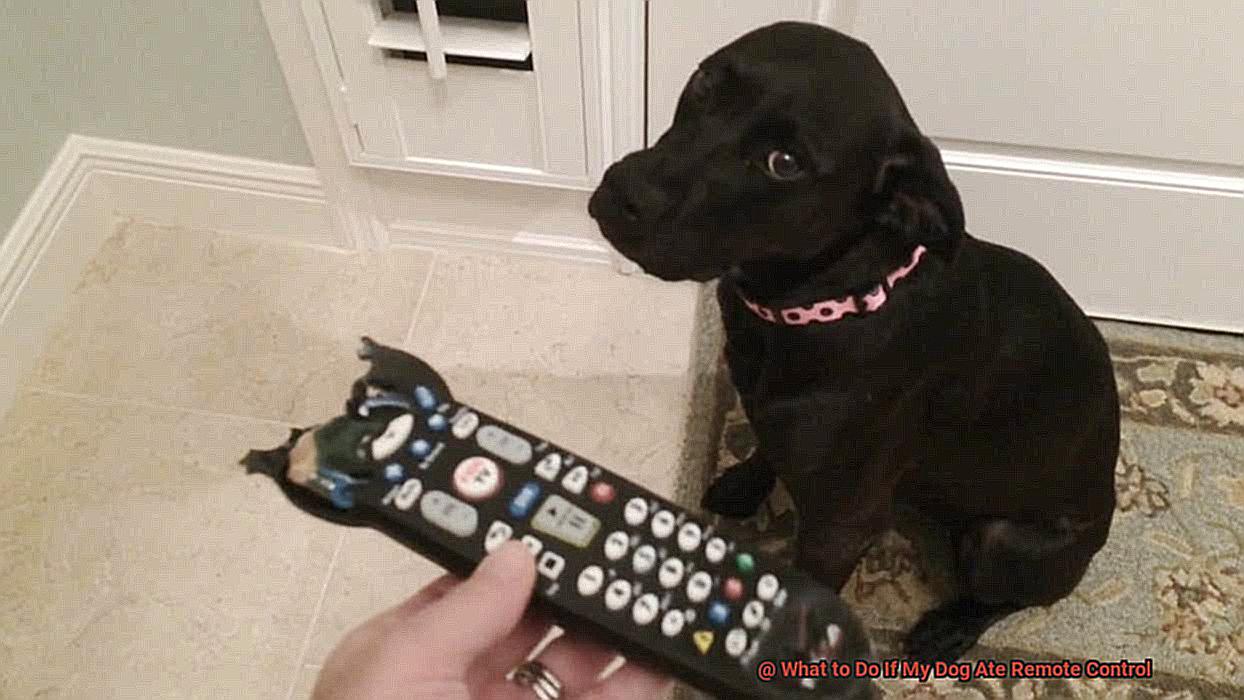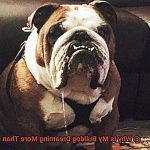What to Do If My Dog Ate Remote Control?
Has your pup ever eaten a remote control? It can be scary when your beloved pet gets into something that could potentially hurt them.
But don’t worry – there are steps you can take to protect their safety and wellbeing if they’ve ingested a remote control.
We’ll tell you what to do if your dog eats a remote control, including how to spot the signs, when to seek medical attention, and how to prevent future incidents from happening.
Keep reading for more info on what to do if your dog has eaten a remote control.
What to Do If Your Dog Ate a Remote Control
Contents
If your beloved pup has swallowed a remote control, it’s essential to act fast. The first step is to check their mouth and throat for any pieces of the remote that may have been lodged there.
If you find any, remove them as soon as possible.
After that, contact your veterinarian and take your dog in for an assessment right away.
Monitor Your Dog Closely.
If it is safe for your pup to pass the remote control through their system, you should monitor them closely for any signs of distress or discomfort.
It could take anywhere from a few hours to several days for the remote control to work its way through their system, so make sure you are prepared and have everything you need during this time.
Emergency Surgery May Be Required.
In some cases, it may be necessary for your vet to perform surgery in order to remove the remote control from your dog’s stomach or intestines.
This is usually only done in extreme cases, but it is important that you are aware of this possibility before taking your dog in for treatment.
Prevention Is Key.
Once your pooch has recovered from eating the remote control, it’s vital that you take steps to prevent them from doing so again in the future.
Make sure all electronic devices are kept out of reach and that any cords are securely fastened down so they cannot be chewed on by curious pets. Additionally, consider investing in some chew toys or treats made specifically for dogs that like chewing on things – this may help them avoid objects around the house that could be dangerous if ingested.
Seek Professional Assistance Immediately.
If your dog has ingested a remote control (or anything else), seek professional assistance immediately. A vet can assess the situation and determine if there are any risks associated with your pet’s ingesting something they shouldn’t have, and if there are any, they can advise how to proceed with treatment.
How Long Does It Take for Something to Pass Through a Dog’s System?
Have you ever stopped to consider how long it takes for something to make its way through a dog’s digestive system? It’s an important question to ask, especially if your pup has gotten into something they shouldn’t have.
The answer is, it depends.
The amount of time it takes for something to pass through your four-legged friend’s system will vary depending on the size and type of the item ingested.
If a small object is swallowed, such as a remote control, it will usually make its way through the digestive tract in 24-48 hours.
Think of it like traveling down a winding river – some items will take longer than others to reach their destination.
Larger items may take longer to move through the system, up to several days or weeks.
It’s essential to keep an eye on your pup’s stool for any signs of obstruction or blockage.
If your dog isn’t passing the item within 48 hours, seek veterinary attention immediately.
This is similar to getting stuck on a logjam in the river; you need assistance from an expert guide.
Why Did My Dog Eat the Remote?
There are a few possible explanations.
Boredom and curiosity could be the culprits.
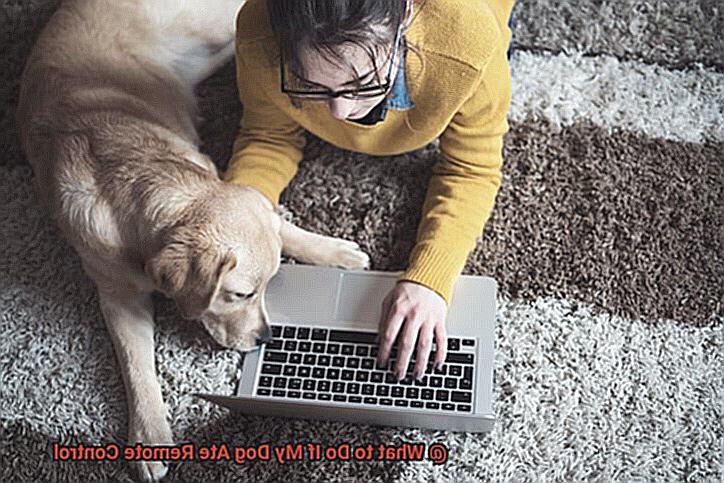
Your dog may have been attracted to the remote’s texture or scent and decided to take a nibble.
It’s likely that they were just trying to explore their environment and find something interesting to do.
It’s also possible that your pup has a compulsive habit of chewing on objects.
This can stem from anxiety or stress, so if this is the case, it’s important to consult with your doctor about how to help them regulate their behavior.
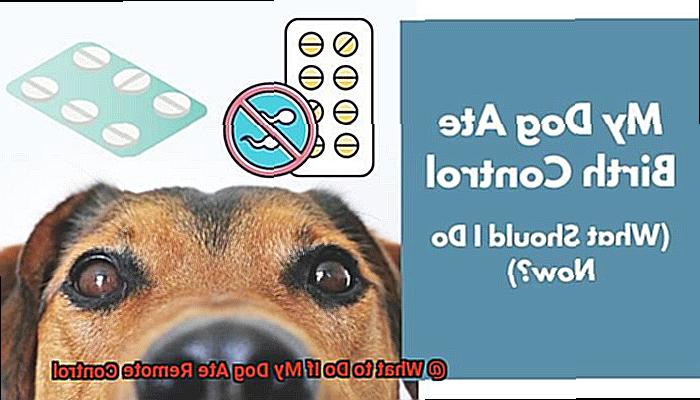
Nutritional deficiencies can also lead dogs to seek out non-food items such as remotes.
If your pup is eating things they shouldn’t, it’s important to have them checked out by a specialist in order to rule out any underlying medical conditions.
Finally, some doggos may be attempting to get attention from their owners by eating the remote. If this is the case, make sure you give them plenty of mental stimulation throughout the day, like walking or puzzle toys, so they don’t resort to destructive habits such as chewing on things they shouldn’t.
So next time your pooch eats something unexpected like a remote, remember that there are several potential explanations for their behavior.
How Do I Get My Dog to Stop Eating the Remote?
It’s both frustrating and dangerous, so taking steps to stop them from doing it is essential.
First, make sure that the remote is out of your pup’s reach.
Put it in a drawer or cabinet that your pup can’t access.
You can also train your dog to stay away from the remote using positive reinforcement and treats.
This way, they’ll learn that chewing on the remote is not a good habit.
Provide your pup with other chewable items such as toys or bones to satisfy their urge to chew.
When your pup is near the remote, monitor them and redirect their attention elsewhere if necessary.
If they’re still having trouble, you may need help from a certified animal behaviorist.
Remember: “A puppy without bones is like a sky without stars – empty and dull.” Teach this proverb to your pup and keep the remote safe.
Will a Battery Pass Through a Dog?
Do you ever wonder if a battery can pass through a dog? The answer is yes, but with caution.
Batteries, although small and seemingly harmless, can contain hazardous materials that can be dangerous to your pup if ingested.
If the battery passes through the digestive system without getting stuck in the throat or esophagus, it will usually pass without causing any harm.
However, if the battery is stuck in the throat or esophagus, it can lead to serious tissue damage which may require surgery to remove.
If it lodges in the stomach or intestines, it could cause an obstruction that may result in infection and other complications.
If you think your dog has swallowed a battery, don’t hesitate – take them to the vet immediately.
Think of a battery like a tiny ticking time bomb; if left unchecked, it could cause serious injury to your beloved pet.
Tips and Tricks to Keep Your Dog Away from Electronics
Keeping your pup away from electronics can be a daunting task, but with these easy tips and tricks, you can keep both your pup safe and your electronics in one piece.
Hide or Put Away All Electronic Items
When not in use, tuck away all electronic items that could be a temptation to your pup.
Remotes, gaming consoles, notebooks, phones- any item that could be chewed on should be kept out of sight.
This will help prevent them from being in reach of your pup’s curious nose.
Keep Cords and Wires Tucked Away
To pups who like to chew on them, cords and wires are especially appealing.
To prevent this from happening, make sure to tuck cords and wires away so they are not readily available to your puppy.
As an added precaution, you could also try using a taste deterrent on cords or wires that your dog may be tempted to chew on as an added precaution.
Provide Plenty of Toys
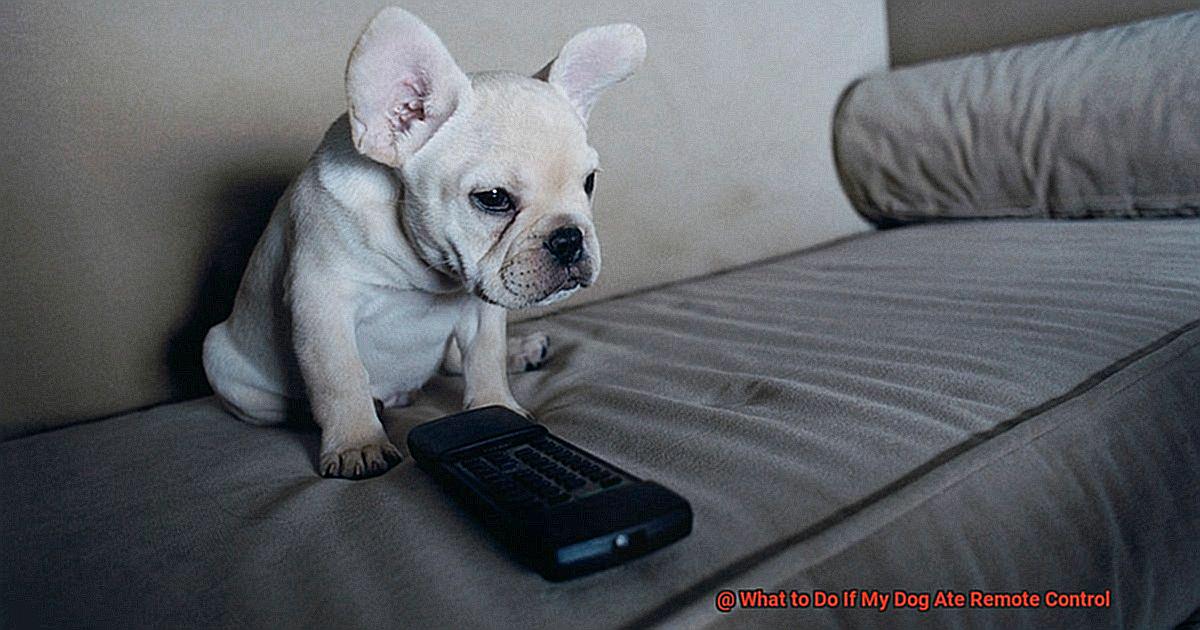
Providing plenty of toys for your dog is the most important step in keeping them away from electronics because it gives them something else to focus on rather than chewing on cords or other electronic products.
Make sure the toys you buy are appropriate for their age and size, as well as durable enough to withstand their playtime antics.
Supervise Your Puppy
If your pups have a history of chewing on electronics or if you have multiple pups in the household that could get into mischief together, they should be supervised when near any electronic devices.
Train Your Dog
Preparation is key when it comes to teaching your puppy proper behavior around electronics.
Positive reinforcement strategies such as verbal praise or rewards can help them understand that chewing on electronics is not allowed and will result in consequences such as time-outs or loss of privileges like access to the couch or bed.
Conclusion
In conclusion, it’s vital to be aware of your pup’s diet and take preventive steps to keep them safe.
If your dog has eaten something they shouldn’t, seek medical help immediately.
With the right care from an experienced vet, your pooch will be back on their paws in no time.
Additionally, providing a variety of toys and monitoring their behavior can help them steer clear of hazardous items.
By following these simple steps you can ensure that your furry friend is safe from harm.
